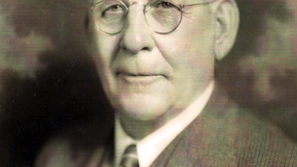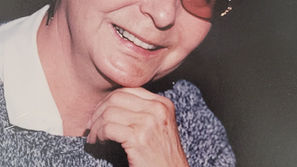Being With The People — A Diary by Kirk Edwards: Leningrad 1989 — Tuesday, June 27, 1989
- Bill Coate
- Mar 17, 2021
- 4 min read

For The Madera Tribune
CWO Kirk Edwards is shown here sharing some vignettes from his Leningrad Diary with Professor Jose Gonzalez’ English class at the U.S. Coast Guard Academy in November 2019.
In 1989, Kirk Edwards, a 1973 MHS graduate, had an experience unique to Madera natives. He traveled as a member of the U.S. Coast Guard Band to the Soviet Union — the first U.S. Band to do so. Throughout his stay, he kept a diary, an abridged copy of which is here published, in serial form, for the first time.
Goin’ home
I was very excited about going home as I descended the four flights of stairs in the Octobersky Hotel at 4 a.m. with my luggage and the boxes of music folders. I was anxious to share our experiences and show off my souvenirs and gifts to my friends and relatives back in the U.S.
I gazed intently at the surroundings as we departed through the city on the bus. I was saddened because I felt certain that I would not ever have the opportunity to return to this beautiful city.
It was after 6 a.m. before our flight departed Leningrad. As I boarded the flight I noticed that the young woman from the English ballet company (Dania) was the only occupant of the first class cabin on the plane. I joked with this good-natured woman about trading places with me as I walked toward the economy class seating section. Tony and I stored our luggage and settled in for the long trip to Frankfort, via Moscow. Tony had the window seat, while I was assigned to the middle seat. I was quite surprised when the attractive woman in the olive-green jumpsuit came and settled in the seat next to me.
We were booked on an Aeroflot flight, the Soviet airline, from Leningrad to Frankfort, Germany via Moscow. We were famished as the flight attendants began to serve breakfast. The flight attendant brought Dania a special vegetarian meal. Dania ordered a bottle of champagne from the flight attendant. She seemed upset that the flight attendant charged her for the champagne. Neither Dania nor the flight attendant could uncork the champagne when it arrived. The flight attendant handed the bottle to me. I opened it and confidently poured a glass for Dania.
Dania was educated in Leningrad. She had a Master’s Degree in architecture, but was disenchanted with that vocation. An interest in fashion design grew out of her frustration regarding the absence of fashionable attire in Russia. Many of her fashion designs utilized folk types of apparel.
Dania seemed very knowledgeable about music. She was familiar with many of the Soviet composers and had an affinity for classical music. I told her that I was interested in classical music, jazz, and gospel music. I explained to her that gospel music was played in African American churches in the U.S and originated in the African American tradition.
Dania told us that she had a son who would soon graduate from high school. She said that her son was interested in attending a college in the U.S. Tony recommended Connecticut College, Harvard, or Northwestern University. He added that Midwestern schools would be ideal because they are located in America’s heartland. Dania had suggested that her son attend a small college in the South. But, I interjected that I thought that it would be senseless to come to the U.S. and attend a homogeneous school. You would miss out on the racial interaction that makes the U.S. so unique. If you attend an institution such as Connecticut College or a Big Ten school a cross section of America is not represented. I recommended schools such as UCLA, and other California schools. An education involves more than the things that you learn in the classroom.
Tony told Dania of the hospitable people of the Midwestern U.S. He even invited her to experience his mother’s incredible cooking if she visited the Midwest in the future. Tony also discussed his father’s wide knowledge about politics and detailed his father’s distinguished military career in the U.S. Navy, his subsequent career at IBM, and the private vocational placement service that his Dad had later established. Tony was proudly relating an American success story.
Dania asked us, “Why didn’t the U.S. come to our aid during the siege of Leningrad.” Neither Tony nor I could think of a satisfactory answer to this poignant question. We desperately wanted to provide a logical response. But, we definitely did not have a suitable answer. Then Tony provided a theory that was based on some European phenomenon.
A passenger that was seated behind us told Tony that she was very impressed by his knowledge. When Tony left to go to the lavatory, Dania surprised me by saying, “I can’t understand him.” He talks too fast.” We both laughed as we thought about the excitement in which Tony related his stories.
Dania was quite concerned that her friends had been waiting a long time for her in Frankfort because of our flight’s delayed arrival. We expressed our mutual appreciation to one another for making the trip so enjoyable. Being in her company made the time fly and our intriguing exchange of ideas and experiences enriched my flight. “I feel self-conscientious about my attire in the presence of a fashion designer,” I said. But, Dania assured me that I was fashionably attired in a casual mode.
Feeling very comfortable with her by now I said, “You are very attractive.”
“Would you repeat that,” she replied playfully.
“You are beautiful,” I repeated confidently. Dania gave me a business card bearing her name, address, and phone number in Bombay. I helped her take her luggage from the overhead compartment and said goodbye to her as we arrived in Frankfort.


























Comments